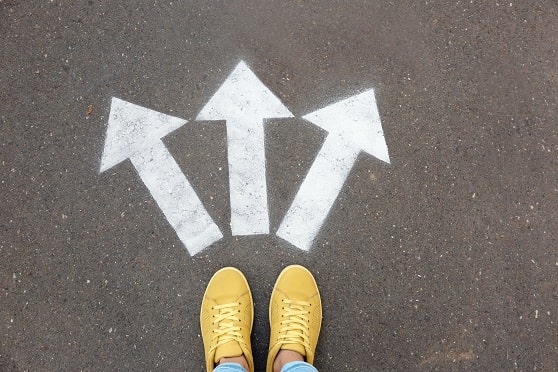Clinical Psychologist to Digital Learning Coach: How I switched careers


Recently, I stumbled upon an intriguing article by LinkedIn CEO Ryan Roslansky, where, through a graph, he artfully described how people think an ideal career path should look like and how there exists an alternative.
The article grabbed my attention especially since I did not fulfil the criterion of having the “ideal” career path and have spent days and months regretting, brooding and sulking over lacking the “ideal” career trajectory.
As a 25-year-old with a bachelor’s degree in Psychology, a master’s degree in Applied Psychology and an MPhil in Clinical Psychology, I was utterly clear about pursuing a career in Clinical Psychology.
Out of my comfort zone
But fate had other plans. I left India for France and arrived in Europe with eyes full of dreams — of pursuing an exciting career in Clinical Psychology. Very soon I found that it was nearly impossible to penetrate the French market in that field without knowing the language, culture and their approach to Psychology.
As desperate as one could be, I contacted people — professors, psychologists, therapists — whoever I could find. I looked them up on the internet and approached them.
All of them unanimously suggested learning French, understanding the culture and looking for an opportunity thereafter. Being my impatient self, I couldn’t sit and wait. So, I decided to pursue a different career.
Psychology to Learning and Development: A turnaround
I got admitted to a master’s programme in International Human Resources. Upon completion of the master’s degree, I got an opportunity to work in a domain within HR which was not taught in my master’s programme. It was Learning and Development. Thus began my journey in the field of Learning. My career now revolved around the business world. This was a big shift. The demands of my previous career and that of my new one were massively different.
My way of thinking, acting, operating and managing situations underwent a radical change. I encountered situations in which I had absolutely no prior experience. My previously acquired skill sets took a backseat and acquiring other relevant skills became the priority.
I doubted my decision of making this transition several times, but had I not opted for the change, I would have scarcely known myself today. I would have hardly identified my strengths and weaknesses or know what lay beyond my comfort zone.
Getting ready for change
Change is a reality which is impossible to escape, but it is up to us to embrace it and work with it or resist it and fight it. In both cases, change will occur. But how we let it impact us decides our narrative about it.
In today’s rapidly transforming world, change is the new normal. Even a subject matter you think you have mastered transforms itself and you need to catch up.
Today’s workplace demands more flexibility and also provides more opportunity for change. The possibility of a career change and making a fresh start is way higher than it was in the past. Seize the opportunity!
Embrace change and change will embrace you in return. Here’s what worked for me when I made the career transition and something you can use too.
Things to think about if you’re planning a career switch
If you do not want or have the opportunity or a plan to switch careers, that’s totally fine. But if serendipity comes your way, do not shy away from it.
When that happens, here are some important questions to ask yourself before taking the leap:
To love a new career, you do not need to completely let go of the earlier one. Try to find ways to connect both. Look for opportunities to use transferable skills. Your previous career could actually serve as a springboard for the new one.
So, hold your past close and prepare for the present and future.
Soumi Das is a clinical psychologist-turned-learning and development professional. She is currently a Programs Specialist for Leadership Development programmes at Saint Gobain, Paris.